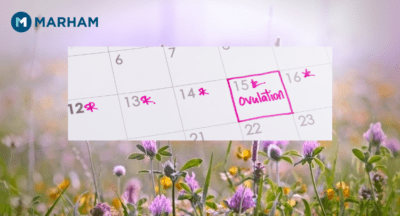Red clover is a flowering plant belonging to the peas family. The herb is frequently used to increase fertility and chances of conception in women. Red clover containing antioxidants improves overall reproductive health when combined with a healthy lifestyle.
Red clover benefits for fertility
The herb has plenty of essential constituents for boosting reproductive health and fertility, particularly in women. The variety of antioxidants in red clover provides benefits including;
Regulation of Hormonal Balance
Red clover is rich in plant-based chemicals called phytoestrogens. They provide estrogen-like effects to the body and thus increase the chances of pregnancy.
- The primary phytoestrogens in herb are genistein and daidzein. They mimic the effects of estrogen in the body which assist in regulating the normal ovulation cycle.
- This hormonal regulation sets the stage for successful conception.
Fortifying Uterine Health
The red clover is known for long to support the uterine lining and prepare it for successful implantation.
- Research indicates that women taking red clover tea have an increased thickness of uterine tissues.
- The strengthening of uterine muscles by this herb prepares the walls to hold the fetus.
- Red clover also stimulates the blood flow to the uterus which imparts benefits to the normal ovulation cycle and cervical fluid.
Antioxidant Capabilities
The antioxidant capabilities of red clovers are well-researched to benefit reproductive health.
- Cells are protected by antioxidants from the oxidative damage caused by free radicals.
- Red clover tea improves the environment for reproductive health by lowering oxidative stress.
Nutritional Support
Calcium, magnesium, potassium, and B vitamins are just a few of the vital vitamins and minerals that red clover is abundant in.
- In terms of general health and reproductive function, these minerals are essential.
- It can indirectly help with fertility to have proper levels of certain vitamins and minerals.
You may also read Benefits of Pumpkin Seeds for Fertility.
It’s important to remember that everyone may react differently to red clover, and not everyone will enjoy the same advantages. Further scientific investigation is required to substantiate these claims because the evidence for these advantages now relies mostly on anecdotal reports and traditional use.
Consulting a Gynecologist for Expert Guidance:
To maximize the benefits of red clover and embark on a personalized fertility journey, it is essential to consult a skilled gynecologist. They possess the expertise and knowledge to assess your unique needs, provide evidence-based advice, and guide you toward optimal reproductive health.
Book an appointment with a trusted gynecologist to discuss incorporating red clover into your fertility plan. They begin with a comprehensive evaluation of your health, taking into account your medical history, hormonal tests, and overall well-being. With their expert guidance, you can incorporate this herbal treatment into your diet to achieve a successful conception.
FAQs
1. Does red clover make you infertile?
When fed during the breeding season, many legumes and clovers, particularly red clovers, are claimed to cause temporary infertility in female sheep. Also, red clover, if grazed for an extended period of time, is said to cause irreversible infertility in ewes.
2. How can you get pregnant in 2 days?
Vaginal intercourse for 2-3 days on ovulating days can help you get pregnant. A sperm can live in the vagina for up to 3 days at least hence a fresh sperm each time increases the chances of conceiving.

